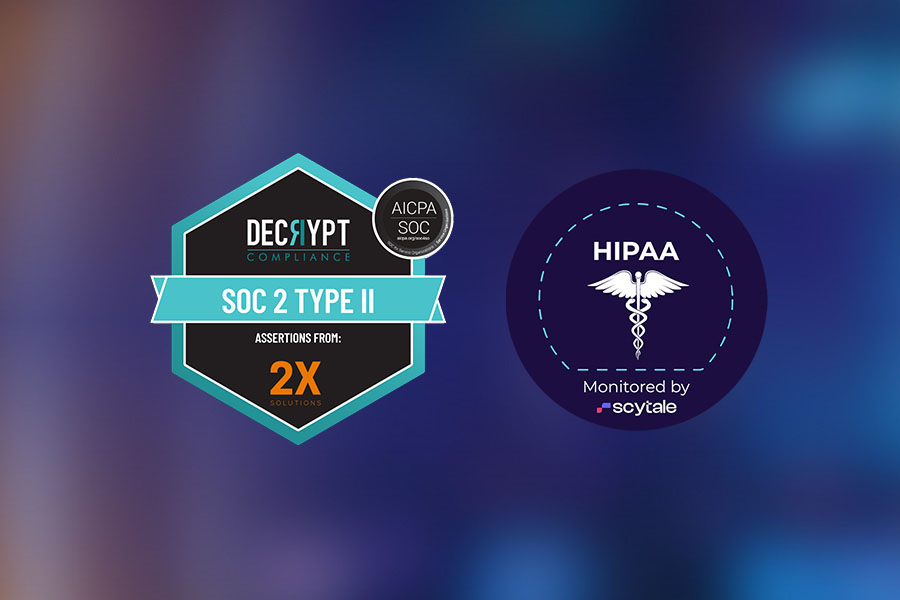For insurance companies that must balance customer service demands with cost control, new technologies can provide a big advantage. Insurance markets are extremely competitive. If you are on the leading edge of deploying a new technology, it can be the difference in gaining market share or improving profit margin.
Leveraging conversational AI in insurance customer service shows promise as one of those market-changing innovations. Artificial intelligence helps you serve customers efficiently at a lower cost. Conversational AI takes customer service to a higher level by making the interaction seem as natural as possible.
Conversational AI adoption in insurance seems inevitable because of the advantages it brings to your company. Learn more about what this technology involves and how to use it effectively.
Introduction To Conversational AI in Insurance
Deploying conversational AI in insurance customer service starts with understanding the technology. At a basic level, conversational AI involves using technology to create conversations with customers in real time that feel natural.
The customer likely knows that there’s an AI virtual agent or a chatbot on the other end of the conversation. However, the technology’s ability to make the process seem natural means the customer can interact with it successfully.
Using conversational AI for customer interactions introduces efficiency to your customer service team. Rather than deploying a human agent to answer simple questions from a customer, the virtual agent can handle this type of call.
The benefit of conversational AI over older forms of virtual agents is that the newer technology can better personalize the conversation. The conversational AI virtual agent or chatbot can find information in the customer’s account history to use in the interaction. This saves time and allows the AI agent to anticipate the customer’s concerns, making the entire process seem more natural to the customer.
Enhancing Customer Engagement
Improving insurance support with AI shows its advantages through the level of satisfaction customers have with the engagement. Rather than sitting on hold for a long time to wait to talk to a human agent, a customer may prefer trying to work through the problem immediately with a virtual agent.
A Gartner study shows that one-third of all customers – and 44% of millennial customers – prefer an automated customer service experience. They would rather try to solve problems themselves than speak with an agent who may try to sell them new services. With conversational AI available in your customer support options, customers can use self-service options more effectively.
Perhaps the customer just wants to ask a simple question related to a previous call. When you have conversational AI running through chatbots and virtual assistants, the technology can find information from the previous call. It then can give answers that use that information, hopefully satisfying the customer’s request faster.
Should the customer question be too complex for the virtual assistant, conversational AI can understand when to pass the problem to a human agent. This advances the call forward more efficiently and keeps the customer engaged.
Automating Routine Tasks

Insurance customer service automation in the routing of routine calls is important because of the multiple types of specific inquiries customers have, including:
- Policy questions
- Making claims
- Paying bills and premiums
- Coverage questions
- Scheduling appointments to create an estimate
Such routine tasks likely involve different departments of the insurance company. However, routing the calls and requests to the right place doesn’t necessarily need to involve a human customer service agent. Customers can provide important information on their own through the conversational AI agent.
Additionally, conversational AI can help customer call routing when the customer isn’t quite sure where a seemingly routine call should go. Customers can explain the issue they’re having in natural language. The conversational AI then can interpret the customer’s intent and figure out the best way to handle the routine call.
Allowing conversational AI in insurance customer service to pull data from past interactions with the customer delivers even more accurate results, even on calls that seem routine. Ultimately, automating many of the tasks saves time for both the customer and the customer service team.
Leveraging Natural Language Processing (NLP)
Any conversational AI solutions for insurance that you deploy will take advantage of multiple types of AI. One of the most important technologies is natural language processing (NLP).
When the policyholder calls the insurance company with a query, NLP allows the virtual agent to comprehend what the customer is saying and respond accordingly. When using NLP, the computer deploys algorithms, a database of information, and rules about language to interpret what a human is saying. The computer running conversational AI then uses NLP to generate a response that fits perfectly into the conversation.
Because the customer can simply verbalize the question over the phone or type it into a chatbot, it feels more natural on the customer’s end. The customer doesn’t have the limitation of a “pick from the following menu” virtual assistant interaction. Conversational AI removes the frustration of the menu not including the customer’s desired action.
Providing 24/7 Customer Support
One of the biggest advantages of deploying conversational AI in insurance customer service is the ability to respond to policyholders at any time. Whether the customer prefers to reach out to your company at 3 p.m. or 3 a.m., your conversational AI virtual agent is ready to respond.
Rather than paying human agents to sit and wait for phone calls or chat messages at off-peak hours, you can have AI take on this role. The customer receives an instant response at any time, including during holidays, rather than receiving a frustrating message that customer service is not available.
Because such a significant percentage of customers prefer self-service options to find answers to their questions, they expect to be able to reach out to your company at any time. When you have conversational AI available to answer their inquiries, you can meet their expectations.
Additionally, virtual agents using conversational AI can handle an unlimited number of calls simultaneously. Customers can avoid waiting on hold, regardless of when they call.
Personalized Recommendations for Customers

One of the benefits of conversational AI in insurance is being able to personalize recommendations for new services during a customer interaction. The AI virtual agent can instantly analyze each customer’s current policy features and past interactions with the insurer. It then can suggest policy enhancements or riders that the customer may not know about.
A human agent could also make these suggestions, but it may take the human agent several minutes or longer to review the customer’s policy and past interactions. The customer may not be willing to wait that long.
When the conversational AI makes a policy change suggestion, the caller may ask questions requiring detailed answers. The virtual agent then can send the call to a human agent, along with the basic information the conversational AI discovered. Receiving background information about these kinds of cross-selling opportunities can make your human agents more efficient.
Integration With Existing Channels and Addressing Concerns
Some insurance companies have an interest in deploying conversational AI, but they worry whether this new technology will mesh with their existing systems. Insurers don’t want to make their team members less efficient while they struggle to integrate this type of transformational technology.
Insurers must follow multiple rules regarding the privacy of customer information. Any new conversational AI system must maintain compliance with the regulatory environment.
Having a partner that’s an expert in deploying conversational AI is key to alleviating these concerns. At 2X Solutions, we have the experience you can trust to integrate the AI systems as seamlessly as possible while ensuring data integrity. We have a track record of success in this area, especially when helping insurance companies meet their regulatory obligations while deploying technologies like conversational AI.
How 2X Solutions Can Help
It can be daunting for companies to embrace a new technology like AI. If you don’t feel like you have a thorough understanding of AI technology, you may hesitate to rely on it heavily for a key aspect of your business.
For insurers, customer service is a key component of maintaining customer satisfaction. Using AI heavily in this area of the business can be daunting. At 2X Solutions, we can guide you through the process of leveraging AI for customer service in the insurance industry. We will:
- Explain conversational AI in a way that makes sense to you.
- Help you understand everything involved in the implementation process.
- Help with starting to use conversational AI, including training.
- Seamlessly introduce conversational AI features that work with your existing system.
- Monitor advancements in AI technology and help you implement the right ones in the future.
Ultimately, insurers are able to reduce costs and improve profit margins over time when they deploy conversational AI in insurance customer service. Trust 2X Solutions to give you the information you need to make use of conversational AI cost-effectively. If you are ready to learn more about this technology and how we can help you with it, reach out to us today.






